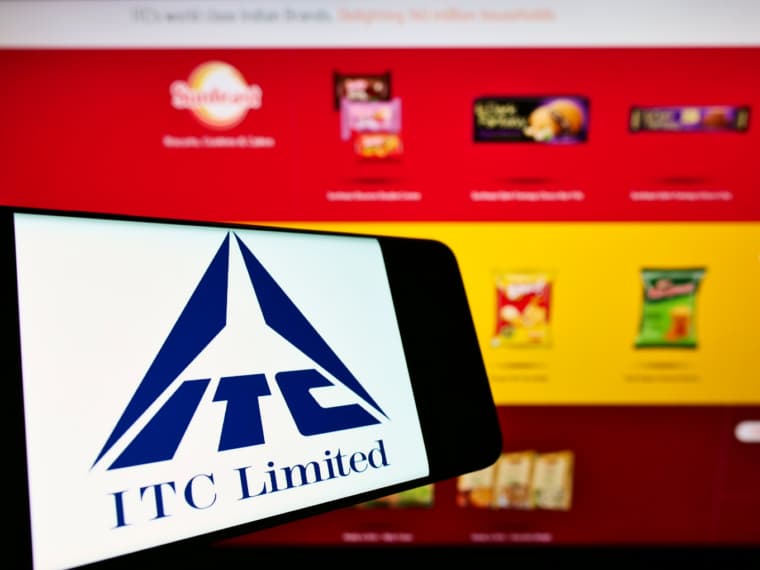
ITC will completely acquire Yoga Bar in tranches over a period of three to four years
The move will complement ITC’s new strategy which focuses on building a future-ready portfolio of products that serve evolving consumer needs
Home to 50,000+ digital-first brands, the Indian D2C market is expected to be a $300 Bn market opportunity by 2030
In a bid to strengthen its presence in the healthy food segment, fast moving consumer goods (FMCG) major ITC plans to acquire direct-to-customer (D2C) brand Yoga Bar.
In a regulatory filing with the bourses, ITC said that it will completely acquire the parent company, Sproutlife Foods, in tranches over a period of three to four years.
“ITC will acquire 100% of SFPL over a period of 3 to 4 years. 47.5% stake in SFPL will be acquired, in tranches, by March 31st, 2025; and the balance stake will be acquired, basis pre-defined valuation criteria, subject to other conditions agreed to in the binding documents,” said the filing.
In the first phase, ITC will make an initial investment of INR 175 Cr via primary subscription and secondary purchases to acquire 39.4% of the shares. This transaction is expected to be completed by next month.
Subsequently, ITC will also infuse INR 80 Cr through primary subscription in the D2C startup by March, 2025, which will increase its cumulative shareholding in Yogar Bar to 47.5%. Eventually, the FMCG major will purchase the remaining shares in Yoga Bar within three months of the D2C brand filing its audited financial statements for the financial year 2025-26 (FY26).
The move will complement the consumer giant’s new strategy which focuses on building a future-ready portfolio of products that serve evolving consumer needs.T he acquisition will also enable Yoga Bar to rapidly scale up by leveraging ITC’s in-house resources in areas such as sales, distribution, sourcing and product development.
The move will also fortify ITC’s presence in new segments such as Nutrition Bars, Muesli, Oats and Cereals.
“We believe that this investment is an exciting opportunity that aligns with ITC’s Foods Business’ aspiration to build a formidable portfolio in the nutrition-led healthy foods space. We look forward to scaling the Yoga Bar brand offering superior and healthy consumer choices,” said the Divisional Chief Executive of foods division at ITC, Hemant Malik.
In a joint statement, Yoga Bar cofounders Suhasini Sampath Kumar and Anindita Sampath Kumar said, “… We are confident that this partnership will add to Yoga Bar’s competitive advantage and take it to the next level from the current Annualised Run Rate of over INR 100 Cr. We are delighted that ITC and Yoga Bar will work together to build one of the largest brands in the healthy foods space.”
Founded in 2014 by Suhasini Sampath Kumar and Anindita Sampath Kumar, Yoga Bar is an omnichannel healthy snacking and breakfast brand that has a wide range of products from Nutrition Bars to Muesli and from Oats to Cereals.
As per regulatory documents, Yoga Bar reported a turnover of INR 32 Cr in FY20, which increased to INR 39 Cr in FY21. The D2C player posted a turnover of INR 68 Cr in FY22.
The acquisition comes amidst a spree of acquisitions by FMCG giants in the D2C space. A month back, consumer major Hindustan Unilever Limited spent around INR 335 Cr in acquiring stakes in two D2C nutrition brands – OZiva and Wellbeing Nutrition. Earlier this month, FMCG player Ghodawat Consumer Limited acquired Delhi-based healthy snack startup To Be Honest (TBH) for an undisclosed amount.
Prior to that in 2022, pharma giant Mankind acquired a majority stake in D2C wellness brand Upakarma Ayurveda for an undisclosed amount. Last year, another FMCG major Marico acquired a 53.98% stake in healthy foods brand True Elements while Emami picked up a 19% equity stake in nutrition-focused D2C FMCG startup TruNativ.
With 50,000+ digital-first brands, India boasts of a burgeoning digital economy that has seen the rise of new competitors for FMCG players. This has essentially bolstered the local ecosystem as the homegrown D2C market is expected to be a $300 Bn market opportunity by 2030.































 Ad-lite browsing experience
Ad-lite browsing experience